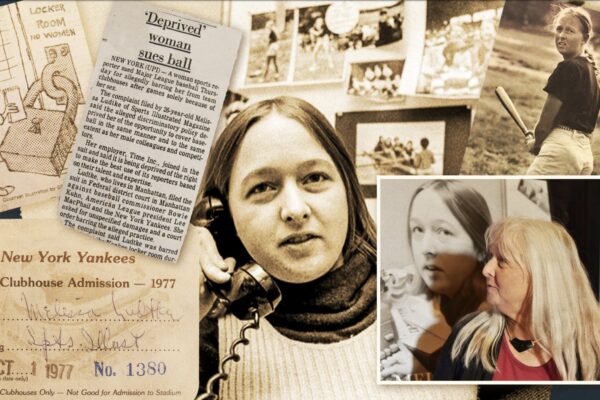The preservation of the walk down the hill might just be the best decision the College Football Playoff made.
The walk takes place soon after 10 a.m. Pacific on New Year’s Day, except when January 1 falls on a Sunday and the celebration steps off on Monday. For all the technical wonders that television has created, spreading the aura of the Rose Bowl Game from coast to coast for generations, the national audience does not have the chance to grasp a basic truth that takes place here at the start of every year.
Out there in the cold in the Midwest and back East, the 129th Rose Parade and the 104th Rose Bowl Game are separate televised events, several hours apart.
But for all the families that have been part of the tradition for all these years, the parade and the game are seamlessly connected from parade to tailgate to kickoff. All you need to do is turn left and take a walk down a hill.
You follow the beginning of the parade route on Orange Grove Boulevard until it reaches camera corner. When the end of the parade makes that tricky hard right on to Colorado Boulevard, you go straight ahead.
You pass over the 134 Freeway, follow Orange Grove as it bends to the right and turn left on Rosemont Avenue. It’s all downhill from there, and soon that script logo at the south end of the 95-year-old stadium is in sight.
You saw Herschel Walker jerseys on Rosemont this morning, the red No. 34 Georgia jersey worn when Walker led the Bulldogs to a 1980 championship and won a Heisman Trophy two seasons later. Georgia had not played in the Rose Bowl Game in 75 years, but the Dawgs looked very much at home today.
The transitional era of the Bowl Championship Series accomplished something that was as essential as it was underappreciated. It brought the Rose Bowl into the rotation of BCS championship games, guaranteeing that conference affiliations would not prevent title matchups from taking place. No longer would Penn State and Nebraska become separated, as they were in 1995, or the way Michigan and Nebraska became co-champions after the Rose and Orange Bowls in 1998.
But the temporary casualty was the seamless connection of Pasadena traditions.
I remember riding in a car on the way to the 2002 BCS championship game between Miami and Nebraska. The game was on Jan. 3. We rode past the abandoned temporary bleachers on Orange Grove Blvd., an afterthought by the time Gameday arrived. Kickoff was after 5 p.m. Pacific, a few minutes after sunset.
The Rose Bowl without sunshine just didn’t feel like the Rose Bowl.
The College Football Playoff addressed that from the start. The Rose Bowl would begin shortly after 2 p.m. Pacific each year, starting with the first semifinal of the new format in 2015. Parade, tailgate, kickoff and sunshine would be reunited in a New Year’s Day celebration, same as it ever was.
By Malcolm Moran | @malcolm_moran


